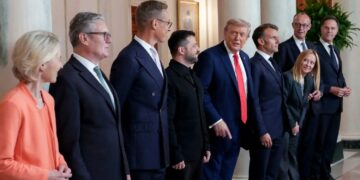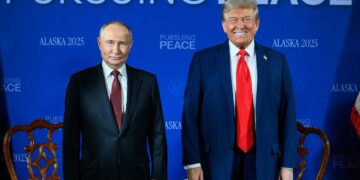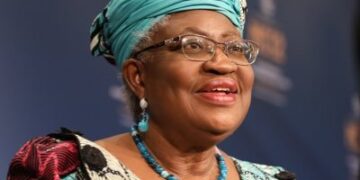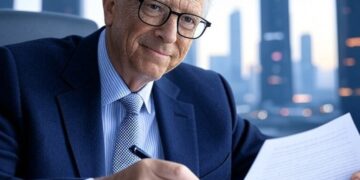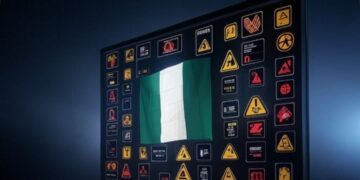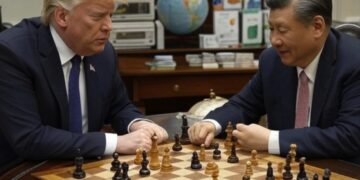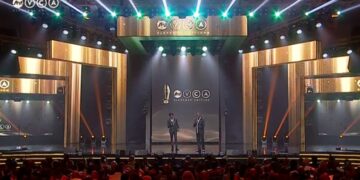In a seismic shift that has sent shockwaves through global markets and diplomatic circles, U.S. President Donald J. Trump declared on Tuesday that Ukraine is “in a position to fight and WIN all of Ukraine back in its original form” against a beleaguered Russia, which he derided as a “paper tiger” mired in economic turmoil. The pronouncement, posted on Trump’s platform just hours after a high-stakes meeting with Ukrainian President Volodymyr Zelenskyy on the fringes of the United Nations General Assembly in New York, marks a dramatic departure from the president’s earlier reservations about prolonged U.S. involvement in the conflict.
The post, timestamped amid the UNGA’s frenetic sidelines, arrives as the Russia-Ukraine war enters its fourth year, with Moscow’s forces bogged down in a protracted stalemate despite initial expectations of a swift victory. Trump, who has long criticized past aid packages as fiscally reckless, cited fresh assessments of the conflict’s military and economic dynamics as the catalyst for his reversal. “After getting to know and fully understand the Ukraine/Russia Military and Economic situation and, after seeing the Economic trouble it is causing Russia,” Trump wrote, “I think Ukraine, with the support of the European Union, is in a position to fight and WIN all of Ukraine back in its original form.”
A Meeting That Changed the Calculus
The declaration followed a 45-minute bilateral huddle between Trump and Zelenskyy, where the Ukrainian leader reportedly laid out updated intelligence on Russia’s mounting logistical woes—long gasoline queues in Moscow, depleted reserves, and a war economy hemorrhaging resources into a front that has yielded minimal territorial gains in over three and a half years. Zelenskyy, emerging from the encounter with uncharacteristic optimism, hailed the exchange as a “big shift” and “very positive” development, signaling potential for renewed American backing under the Trump administration.
For stakeholders in defense, energy, and commodities sectors, the implications are profound. Trump’s rhetoric escalates pressure on NATO allies, urging them to ramp up financial and logistical support while the U.S. pledges to “continue to supply weapons to NATO for NATO to do what they want with them.” This comes atop his UNGA address, where he lambasted European nations for their “unfair” burden-sharing and called for an immediate halt to Russian energy imports—a move that could jolt global oil and gas prices, already volatile amid sanctions and supply disruptions.
European leaders were quick to applaud the pivot. Poland’s Foreign Minister described the words as reaffirming NATO’s resolve, while a German official described the post as “encouraging” in private briefings. On the flip side, Russian officials dismissed the comments as “delusional bravado,” with a Kremlin spokesman retorting that Moscow’s “special military operation” remains on track despite Western “hysteria.”
Market Ripples and Policy Headwinds
Wall Street reacted swiftly: Defense contractors saw pre-market gains of 3-5%, buoyed by prospects of sustained U.S. arms flows to Kyiv via NATO channels. Energy futures ticked up 2% on Brent crude, as traders priced in the risk of escalated European decoupling from Russian pipelines. Yet, for multinational firms with exposure to Russian markets—think commodities giants or tech players navigating sanctions—the post underscores a hardening U.S. line that could accelerate de-risking strategies.
Critics, however, caution against overinterpreting the shift. Trump’s history of mercurial foreign policy stances raises questions about longevity; during his 2024 campaign, he floated quick-negotiated peace deals that would have ceded territory to Russia. And in a terse exchange with reporters post-UN speech, when asked if he still trusts Vladimir Putin, Trump offered a cryptic 10-word reply: “Trust, but verify—Reagan had it right.” Analysts interpret this as a nod to skepticism, suggesting the president’s support for Ukraine may hinge on tangible progress rather than open-ended commitment.
Broader Geopolitical Stakes
For global stakeholders, Trump’s endorsement of a Ukrainian “victory” reframes the conflict not as a quagmire but as a winnable enterprise—one that could reshape Europe’s security architecture and deter authoritarian adventurism worldwide. As Zelenskyy prepares to address the UNGA plenary on Wednesday, eyes will be on whether this rhetorical surge translates to concrete aid packages in the coming weeks.
In the words of the post’s closing line: “Good luck to all!” Yet, as markets and mandarins digest this audacious bet on Kyiv’s resilience, one thing is clear—the stakes for investors, from the Donbas frontlines to Wall Street trading floors, have never been higher.





